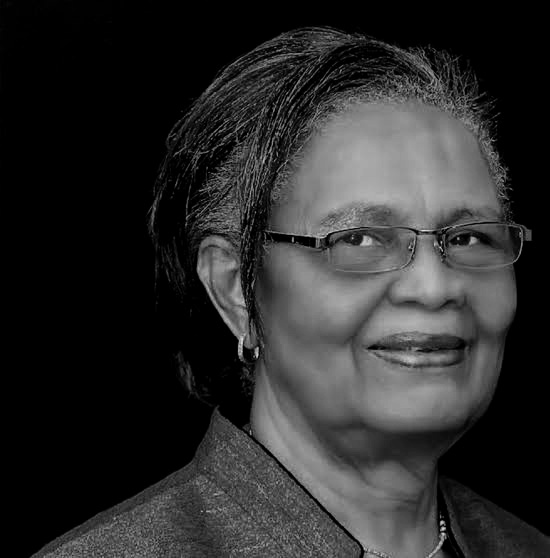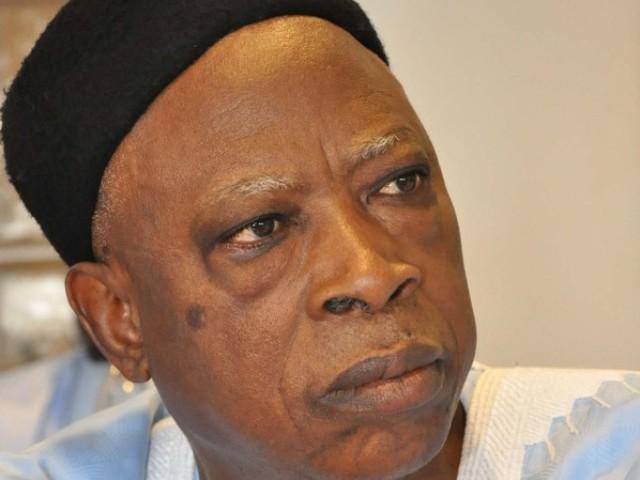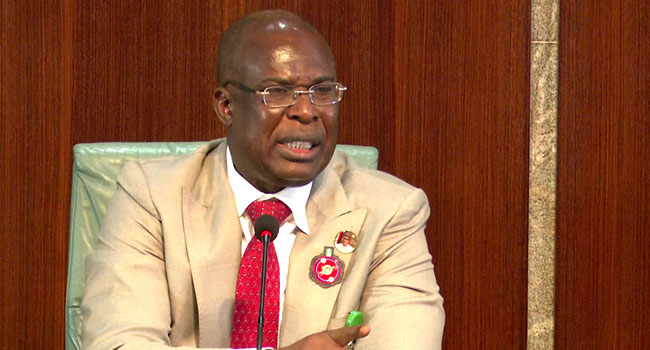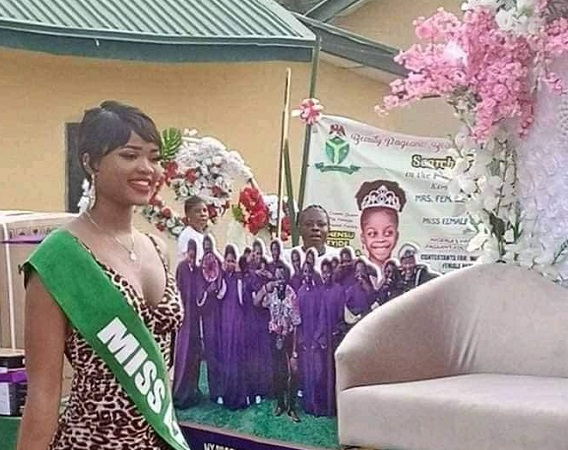In the month set aside to celebrate women and encourage the younger generation to dream beyond societal stereotypes, Nigeria has lost one of its foremost examples of what women can achieve with unyielding determination.
Grace Alele-Williams, Nigeria’s foremost female mathematician, made rocking impact on opening the door of possibilities for generations of women in Nigeria’s academia.
Alele-Williams was a woman of many firsts. She held the torch as the first female vice-chancellor of a Nigerian university, the first Nigerian woman to earn a doctorate, and the first Nigerian female professor of mathematics education.
She not only broke records but was a champion of causes to help women break the glass ceiling in education.
Advertisement
The renowned educationist breathed her last on Friday after spending 89 years on earth. She was blessed with five children and several grandchildren.
THE MAKING OF GRACE

Advertisement
She was born Grace Awani Alele on December 16, 1932, in Warri, Delta state as the last of five children. She started her education at the Government School in Warri before moving to Queen’s College, Lagos, where she graduated in 1949. That same year, Grace gained admission into the University of Ibadan and was said to be one of 10 women among 400 students in the university at the time. She graduated with an honours degree in mathematics in 1954 and started her path to becoming an educationist. As an undergraduate, Grace was said to have taught mathematics in her hometown when school was on break.
After graduation from the University of Ibadan, Grace was appointed as a mathematics teacher in Queen’s School, Ede, Osun state, where she taught mathematics to the students for three years before moving to the University of Vermont, where she earned a Master’s Degree in Education in 1959.
FIRST NIGERIAN WOMAN TO EARN A PHD

Advertisement
Grace was admitted into the University of Chicago, Illinois, for doctoral studies after winning a graduate fellowship award. With a dissertation entitled ‘Dynamics of Education in the Birth of a New Nation: Case Study Of Nigeria’, Grace bagged a doctorate in mathematics education in March 1963, becoming the first Nigerian woman to be awarded a doctorate.
In December that same year, Grace married Babatunde Williams, a political scientist.
IMPACT ON TEACHING OF MATHEMATICS

Three years after joining UNILAG, in 1968, Alele-Williams published a paper titled ‘The Entebbe Mathematics Project’ — the research was the concluding edition of the Entebbe Mathematics Series, which comprises 67 volumes of texts that cover teaching for primary and secondary education.
Advertisement
“The Entebbe Mathematics Series have sometimes been dubbed American, but this is to ignore the valuable contribution of the African participants, who feel keenly the African origin of the series,” the paper reads.
“Moreover, the whole exercise has provided an international forum for teaching and learning, unprecedented in the annals of education.
Advertisement
“Africans, working with Europeans and Americans, have produced mathematics texts good enough for use anywhere in the world. Mutual benefits have been derived by all concerned, and the project has clearly contributed to international understanding.”
The paper was followed by the book ‘Modern Mathematics Handbook for Teachers’ in 1974 — same year she became Nigeria’s first female professor of mathematics education.
Advertisement
She was appointed chairman of the Bendel state curriculum review committee from 1973 to 1979, after which she served as chairman of the Lagos state curriculum review committee and Lagos state examinations board.
NIGERIA’S FIRST FEMALE VICE-CHANCELLOR
Advertisement

Alele-Williams broke a significant threshold in the Nigerian academic scene in 1985 when she was appointed as vice-chancellor of the University of Benin — she became the first woman to become vice-chancellor of a Nigerian university.
Recounting her historic appointment years later, Alele-Williams said: “The excitement I felt on receiving the news from Professor Jubril Aminu (the then minister of education) had more to do with seeing it in terms of opening up the field for women than anything else.”
“I saw it as an opportunity to show that women too could rise to the occasion. Also, I knew what the weight of the expectations of the women was. They were eager to see how things would go, and I was not going to let them down,” she added.
“Mind you, those who appointed me felt I was qualified for it. So, it was not just a case of wanting to satisfy the yearnings of the womenfolk. It wasn’t that simplistic.”
Speaking with Vanguard on her experience with tackling cultism as UNIBEN VC, she said: “I dealt with it”.
ADVOCATE FOR WOMEN’S EDUCATION

Alele-Williams was a vocal advocate of bridging the gap between the education of both genders. In the 10 years that she headed the institute of education of the University of Lagos, she introduced certificate courses that were particularly important in training older women to become primary school teachers. She also demonstrated significant concern about improving access for female African students to take more interest in subjects around science and technology.
In a 2004 talk on Gender Dignity at the Lagos State University, Alele-William said: “As long as we are celebrating a woman vice-chancellor because she is the first or a woman chief judge because she is the first, then we have not arrived. We look forward to the time when we will have many women in such positions, and we will be celebrating so many of them.”
OTHER ACCOLADES

Alele-Williams served on the board of Chevron-Texaco, Nigeria. She was also a fellow of the Mathematical Association of Nigeria (MAN) and the Nigerian Academy of Education (NAE). A recipient of several awards, she was also the chair of the African Mathematical Union Commission for Women in Mathematics (AMUCWMA).
In 2014, she received the centenary award during the administration of former President Goodluck Jonathan.
‘WHY WOMEN LEADERS DO EXTREMELY WELL’
In an interview with Channels Television in August 2014, Alele-Williams also spoke about the extra efforts women put into their jobs.
“We women, when we get to a position, like to be thorough. And many women who go past that stage are very thorough, economical, pointedly vigorous and directed, because they have to do this to move up,” she said.
“Once you’re in that line, you tend to do extremenly well and since the men have the common tie, we don’t have that. We have to do extra work to be seen and voted in even at the lower levels. And quite often, many of us are multitasking ourselves to be in such positions and we come out and are noted.”






